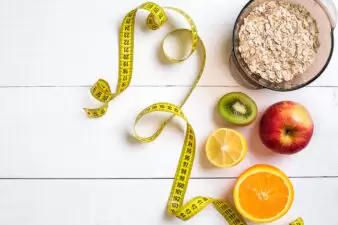
Between TV shows, magazines, social media, and old wives’ tales, there is a lot of bad health advice circulating in the universe. You need to be careful to ignore all this noise to get to the heart of what truly matters in the world of nutrition and fitness.
From misguided diet tips to exercise recommendations gone awry, the road to wellness is sometimes paved with unexpected detours. Here are 12 examples of bad health advice that misfired, serving as cautionary tales for us all.
1. The Grapefruit Diet Misfire
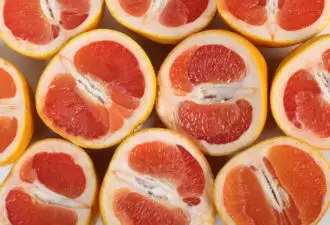
The Grapefruit Diet was a short-lived fad that promised rapid weight loss. The idea was that eating grapefruit with every meal could enhance fat burning.
Enthusiasts quickly discovered that grapefruit interacts adversely with many medications, causing potentially serious side effects. Instead of just slimming down, some dieters faced health complications, proving that a single-food focus isn’t a sustainable idea.
2. Detox Tea Troubles

Social media influencers often promote detox teas as a quick fix for weight loss. Yet, these teas frequently contain laxatives, which, when used excessively, can lead to dehydration, electrolyte imbalances, and digestive issues.
Those who consumed high quantities of detox teas learned a valuable lesson about the risks of quick fixes. Always do your research before falling into the hype of social media fads.
3. The Cotton Ball Diet

Some health advice is clearly misguided, but people still believe it to be true. In one of the more bizarre diet trends, the Cotton Ball Diet involved consuming cotton balls dipped in juice to curb your appetite.
This hazardous diet tip was useless since cotton balls provide no nutritional benefits. What’s more, they pose serious risks of choking and blockages in the digestive system.
4. Eight Glasses a Day Overhydration

You’ve heard for years that you should drink eight glasses of water a day. Unfortunately, this health advice has been warped over the years, with some people taking it too far.
As a result, they ended up experiencing water intoxication or hyponatremia, where low sodium levels can be life-threatening. These serious health risks highlight the importance of tailoring hydration to individual needs rather than following a one-size-fits-all approach.
5. The Raw Water Trend

Despite filters like the Brita system, many people got caught up in the raw water trend. In this diet fad, people drank unfiltered, untreated natural water, believing it to be healthier than processed tap or bottled water.
Unfortunately, this led to some consumers ingesting harmful bacteria and parasites. Water treatment plays a vital role in public health, so never consume water that hasn’t been filtered first.
6. Extreme Carb Cutting
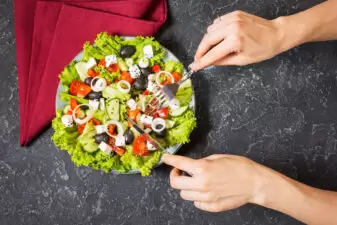
Nutrition plans have made carbs seem like the devil when it comes to weight loss. However, cutting them completely from your diet is bad health advice that you shouldn’t follow.
While reducing carbohydrate intake can benefit weight management and blood sugar control, extreme carb-cutting can lead to nutrient deficiencies, decreased mental function, and mood swings. Many nutritionists are recommending carb cycling instead, which gives you the freedom to consume carbs based on individual needs.
7. Bulletproof Coffee Calorie Surges

Bulletproof coffee, coffee mixed with butter and oil, became a hit for purported energy and weight loss benefits. Drinkers mistakenly often overlook the high-calorie content, which causes rapid weight gain.
This trend is still ongoing to this day, so if you do like the flavor, proceed with caution. As consumers, we always need to consider the full nutritional profile of our food and drink choices.
8. Toning Shoes Fall Flat

Back in the early 2000s, toning shoes were all the rage with consumers. This footwear was supposed to promote weight loss and muscle tone just by walking.
Not only did these sneakers fail to deliver on these promises, but they also caused balance issues and injuries. The fad faded after consumer complaints and even lawsuits over misleading claims.
9. Juice Cleanses and Malnutrition

Juice cleanses had a moment a few years ago. This type of diet was marketed as a way to detox and reboot the body.
Relying solely on juice can lead to severe caloric and protein deficiencies. Do not heed this health advice since proper nutrition involves much more than just vitamins and minerals.
10. Fit Tea Fails

Like detox teas, “fit teas” were endorsed by celebrities as a weight-loss method. These teas did not cause consumers to lose weight, and to make it worse, they also led to digestive problems.
An effective weight management routine requires a healthy balance of diet and exercise. You can’t just change the beverage you’re drinking and expect significant changes.
11. Gluten-Free for All
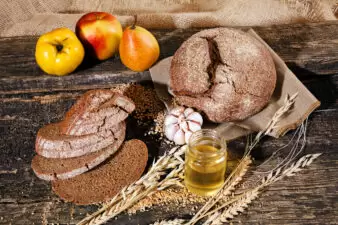
According to the Cleveland Clinic, a mere 6% of the U.S. population is intolerant to gluten. Despite those numbers, going gluten-free is mistakenly perceived as a healthier diet choice.
Many people who adopt a gluten-free diet, but do not have celiac disease, are often missing out on important nutrients found in whole grains. This leads to a dietary imbalance that’s more harmful than beneficial.
12. Coconut Oil Overload
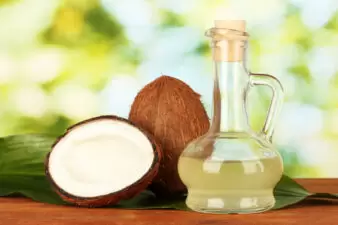
Coconut oil was once hailed as a superfood. Medical experts were recommending it for everything from cooking to skincare. As more research emerges, it has become clear that coconut oil is high in saturated fats, which can raise bad cholesterol levels. The craze has since calmed as more balanced views on fats have emerged.
Do Your Research

These examples of health advice gone wrong highlight the importance of doing your research and proceeding with caution. Always consider the science behind the claims, and ask your doctor directly before making significant changes.
Social media posters are not always licensed healthcare professionals, so don’t take their words at face value. Healthy living is always about balance, so if you’re overindulging or depriving, you’re likely not following the right health trends.
Read More:
12 Health Myths That Keep Fooling Us: Here’s Why They’re Wrong
15 Misconceptions About Mental Health in the Workplace

Alyssa Serio has been a writer and editor since graduating from Aurora University in 2014. In her free time, she loves reading, playing volleyball, and watching any horror movie (even the bad ones) with her husband.







